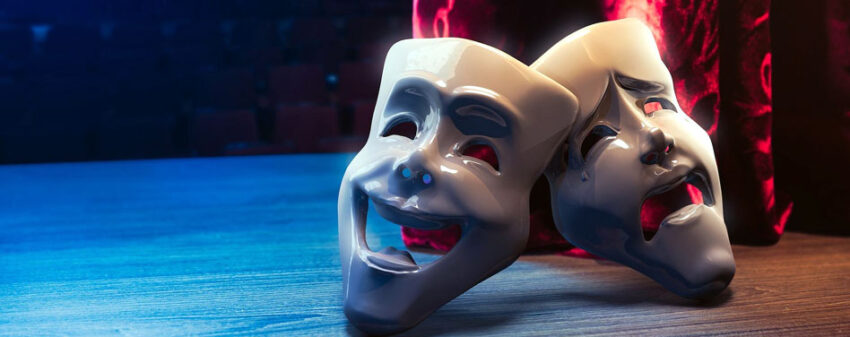
Debacle
Among the men of old their knowledge reached the extreme point.
What was that extreme point? Some held that at first there was not anything. This is the extreme point, the utmost point to which nothing can be added.
A second class held that there was something, but without any responsive recognition of it (on the part of men).
A third class held that there was such recognition, but there had not begun to be any expression of different opinions about it. It was through the definite expression of different opinions about it that there ensued injury to (the doctrine of) the Tao. It was this injury to the (doctrine of the) Tao which led to the formation of (partial) preferences.
Was it indeed after such preferences were formed that the injury came? Or did the injury precede the rise of such preferences? If the injury arose after their formation, Kîo’s method of playing on the lute was natural. If the injury arose before their formation, there would have been no such playing on the lute as Kâo’s.
Kâo Wan’s playing on the lute,
Shih Kwang’s indicating time with his staff,
and Hui tsze’s (giving his views), while leaning against a dryandra tree
(were all extraordinary).
The knowledge of the three men (in their several arts) was nearly perfect, and therefore they practiced them to the end of their lives. They loved them because they were different from those of others. They loved them and wished to make them known to others.
But as they could not be made clear,
though they tried to make them so,
they ended
with the obscure (discussions)
about ‘the hard’ and ‘the white.’
And their sons, moreover, with all the threads of their fathers’ compositions, yet to the end of their lives accomplished nothing. If they, proceeding in this way, could be said to have succeeded, then am I also successful; if they cannot be pronounced successful, neither I nor any other can succeed.
Therefore the flicker of light
from the midst of confusion and perplexity
are indeed valued by the sagely man;
but not to use one’s own views
and to take his position on the ordinary views
is what is called using-the-(proper) light.
Zhuangzi by Zhuang Zhou, trans. by James Legge
I love the tongue-in-cheek manner of expression used by the Taoists. This is a wry story that reflects upon the “wisdom” of antiquity. We’d all agree that human nature is little changed over millennia, and “natural law” is what it is. Sure our tools are advanced, but humans have observed the same phenomena for generations. Again Zhuangzi touches on the Taoist concern for being able to judge the point when more knowledge is just “too much.”
Zhuangzi refers here to three metaphysical hypothesis, perhaps found in the origin story-myths in ancient sacred writings. The first concept is: reality originates from nothing, a void, that at the heart of everything is nothingness. Reminds me of Zen Buddhism…
The second thought: that from an indescribable “stuff” reality originates. Reminds me of the Judeo-Christian thought that the “I Am That I Am” deity decreed all into existence.
And the third concept posits reality as: simply a given, which is well and good – until humans begin to express divergent opinions about “reality.” With the opinions, – trouble begins.
But wait, the plot thickens. Some asserted that antagonistic, competing communities contesting differing viewpoints, was the cause of injury, even murder (think Cane and Abel). Or was it some flaw there all along in the Tao? (injury/sin was the permissive will of God)
Theories, origin stories, never end with the abstract speculation. Who ever resists the temptation to take that step further? A suggestion was made that performance style of Kâo Wan, a famed musician was proof that injury (sin) resulted from obstinate disagreements. A head-scratcher that I don’t understand either.
In any case three celebrated artists known for excellence are pointed out, how much each loved his art for its individual unique expression. Each tried to illuminate his profound understanding to others, – ultimately to confess failure. The measure of their dedication to using “art” as a means to liberate others, can be appreciated by arcane discussions they are rumored to have facilitated. They debated the meaning of ‘the hard’ and ‘the white.’ Yes that’s right – just hard and white.
Finally their sons followed in their footsteps. (What else were they likely to do?) The story concludes with the assessment: at life’s end they accomplished nothing…
The sage writes: the take-away lesson from our story, be reluctant to assert your own conclusions. Hesitate to double down on your own view which you naturally feel (believe) to be right. The real/truth is a composite of many angles of view.
I cannot leave without a song. This one fits, an anthem we can all subscribe to: Stand By Me by the great Ben E. King.